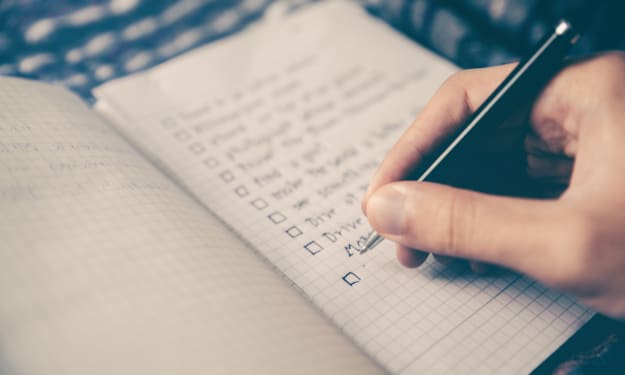Finding Inner Peace: Effective Strategies to Manage Stress and Anxiety
How to deal with stress and anxiety

In today's fast-paced and demanding world, stress and anxiety have become all too common. It's essential to prioritize our mental well-being and develop effective strategies to manage and overcome these challenges. In this article, we will explore practical techniques and tools to help you deal with stress and anxiety. From practicing self-care and mindfulness to seeking support and making lifestyle changes, get ready to embrace a calmer and more balanced life.
Recognize and Accept Your Feelings:
The first step in dealing with stress and anxiety is to acknowledge and accept your emotions. Recognize that it is normal to experience these feelings and that you are not alone. Allow yourself to feel without judgment or self-criticism. This acceptance creates a foundation for taking positive steps toward managing stress and anxiety.
Practice Self-Care:
Self-care is crucial for managing stress and anxiety. Make time for activities that bring you joy and relaxation. Engage in hobbies, spend time in nature, practice yoga or meditation, or indulge in a soothing bath. Prioritize sleep, eat a healthy diet, and exercise regularly. Taking care of your physical and mental well-being helps build resilience and cope with stress more effectively.
Cultivate Mindfulness:
Mindfulness is the practice of being fully present in the current moment without judgment. Incorporate mindfulness techniques into your daily routine to reduce stress and anxiety. This can include deep breathing exercises, meditation, or simply taking a few moments each day to tune into your senses and observe your thoughts and emotions without attachment.
Utilize Stress-Relief Techniques:
Explore different stress-relief techniques to find what works best for you. These can include progressive muscle relaxation, guided imagery, journaling, or engaging in creative outlets such as painting or playing music. Experiment with various techniques and incorporate them into your routine as needed.
Prioritize Time Management:
Poor time management can contribute to stress and anxiety. Take a proactive approach by organizing your time effectively. Make to-do lists, set realistic goals, and break tasks into manageable chunks. Learn to delegate or say no when necessary. By managing your time wisely, you can reduce overwhelm and create space for self-care and relaxation.
Seek Support:
Don't hesitate to seek support from others when dealing with stress and anxiety. Reach out to trusted friends or family members and share your feelings. Sometimes, simply talking about your concerns can provide relief. Consider seeking professional help from therapists or counselors who specialize in stress and anxiety management. They can provide guidance, tools, and techniques tailored to your specific needs.
Challenge Negative Thoughts:
Negative thoughts and self-talk can contribute to heightened stress and anxiety. Practice cognitive restructuring by challenging and reframing negative thoughts. Replace negative thoughts with positive and realistic statements. This shift in mindset can help reduce stress and promote a more optimistic outlook.
Make Lifestyle Changes:
Evaluate your lifestyle and make necessary adjustments to reduce stress and anxiety. Identify triggers and sources of stress in your life and consider making changes to minimize their impact. This can include creating healthy boundaries, making career adjustments, or simplifying your schedule. Small lifestyle changes can have a significant positive impact on your overall well-being.
Engage in Relaxation Techniques:
Incorporate relaxation techniques into your daily routine to combat stress and anxiety. Deep breathing exercises, progressive muscle relaxation, or listening to calming music can induce a state of relaxation and promote a sense of calmness. Experiment with different techniques and find what resonates with you.
Practice Gratitude:
Developing a gratitude practice can shift your focus toward the positive aspects of your life. Each day, take a moment to reflect on things you are grateful for. This practice helps cultivate a positive mindset and reduces stress by fostering appreciation and reduces stress by fostering appreciation and contentment.
Conclusion:
Dealing with stress and anxiety is a journey that requires patience, self-compassion, and the willingness to try different strategies. By incorporating self-care, mindfulness, seeking support, and making necessary lifestyle changes, you can effectively manage stress and anxiety in your life. Remember that everyone's journey is unique, so be open to exploring what works best for you. With consistent effort and a commitment to your well-being, you can find inner peace and lead a more balanced and fulfilling life.
About the Creator
Milton Artis
Milton Artis: Customer Service Guru and Business Whiz with a decade of experience. Master of problem-solving, sarcasm, and making customers smile!






Comments
There are no comments for this story
Be the first to respond and start the conversation.